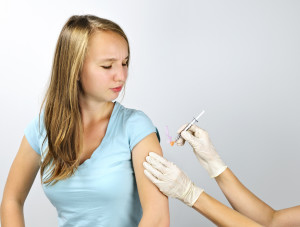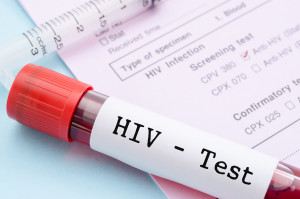 Not only does safe sex offer positive emotional benefits to you and your partner, it offers physical health benefits too. Regularly participating in safe sex is actually a part of a healthy lifestyle. As if you needed another reason to snuggle with your sweetie, read on to learn all the ways sex can help you boost your health.
Not only does safe sex offer positive emotional benefits to you and your partner, it offers physical health benefits too. Regularly participating in safe sex is actually a part of a healthy lifestyle. As if you needed another reason to snuggle with your sweetie, read on to learn all the ways sex can help you boost your health.
Sex Strengthens your Immune System
Regular sex sessions increase levels of immunoglobulins (IgA) by 30 percent. IgAs are important antibodies in the blood that can help protect you from seasonal illnesses like colds and flus. Having sex once or twice a week raises the level of immunoglobulins (IgA) in the body, increasing your natural ability to fight colds and flu. If you’re prone to allergies, sex may be able to help there too. Research shows that sex reduces histamine levels in the body, which could help to ease the symptoms of hay fever.
Sex Can Reduce Your Risk of a Heart Attack
Research shows that having sex three times a week could reduce your risk of a heart attack or stroke by 50 percent and that women who have at least two orgasms per week are 30 percent less likely to have heart disease than those who do not have sex regularly.
Sex Keeps You Fit
Yes, sex can actually count toward your physical fitness goals. Even a 20-minute session can burn 200 calories, the equivalent of running for 15 minutes on a treadmill. See? And you thought all workouts had to be boring.
Sex Lowers Your Blood Pressure
That relaxed feeling you have after sex is not just in your head. Research shows that sex can lower systolic blood pressure levels, offering you another heart-healthy benefit.
Sex May Ease Menstrual Symptoms
Many women report that having sex before their period begins helps to ease menstrual pain in the days that follow. Science supports this theory, as muscle contraction that occurs during sex helps to release the tension in uterine muscles that causes menstrual pain. With a little bit of pre-planning, you can take the edge off your period cramps, no OTC meds necessary.
Sex Boosts Your Libido
More regular sex sessions will help to improve your libido and help ensure each session is more enjoyable. Women who have frequent sex benefit from increased lubrication, blood flow, and elasticity, which helps to improve comfort and enjoyment.
Sex Improves Sperm Quality
For men, studies show that regular sex improves the quality of their sperm. Only 10 days without sex can lower sperm quality, which is why couples hoping to conceive may be able to improve their odds with regular sex sessions.
Sex Improves Bladder Control
Sex helps to strengthen pelvic floor muscles, which are responsible for avoiding incontinence, a condition that affects 30 percent of women at some point during their lives.
Sex Boosts Anti-Aging Hormones
That’s right. Forget expensive wrinkle creams. Sex can actually help you look younger. Sex boosts levels of the hormone dehydroepiandrosterone (DHEA) to five times their normal levels.
Sex Can Lengthen Your Lifespan
Research shows that having sex at least twice per week may increase an individual’s lifespan by three to eight years, which means couples with a healthy sex life give themselves a better chance to have more time together.
Remember, while there are many health benefits to having regular sex, there are also risks involved if you don’t follow safe-sex practices. To maximize your health benefits and lower your risks, be sure to use protection, know your partner’s health history, and avoid other risky behaviors.
More
If you’ve ever had a yeast infection, then you know it’s an incredibly relentless, uncomfortable, and painful condition, and you likely would do anything to avoid a future diagnosis. If you now live in fear of the itch down there, know that not all feminine itching is related to yeast infections. There are a variety of factors that can cause itching and discomfort. In fact, 25 percent of the time when women visit their OBGYN suspecting they have a yeast infection, lab results indicate there is no infection to blame. Read more about some of the factors that could be causing your discomfort, and how to avoid them.
Dermatitis, or Inflammation of the Skin
If what you’re experiencing is an itching of the exterior vulva and not any internal itching, you may have a case of dermatitis or an inflammation of the skin. Causes of dermatitis can vary, and may include shaving with a dull razor, wearing tight pants, or keeping your sweaty gym clothes on too long post-workout. Avoiding these triggers is as simple as swapping out your razor when the blade becomes dull, choosing more loose-fitting clothing, and showering and changing promptly after your workout.
Harsh Beauty Products or Regimens
The cleansing or beautify products you use could be drying out your skin, or causing an allergic reaction that’s triggering the itching and discomfort you feel. Any products used around your vaginal area should be free of fragrances and as natural and ingredient-free as possible to avoid irritation. Check the labels of the products you use daily, and consider if a more natural solution may be available. In addition, if you’re douching, it could be drying out and irritating your vagina. Avoid douching products to help ensure you’re not stripping away natural lubricants.
Age
As women age, their estrogen levels naturally lower, which could alter the pH balance of your vagina. When this happens, your vaginal walls tend to thin and dry, resulting in itching, irritation, and pain, especially during sex. If you are premenopausal, talk to your OBGYN about possible supplements or prescription medications that may help balance dipping estrogen levels.
Sex-Related Irritants
Your discomfort may be related to your sexual activities. A new lubricant (or not enough), could be causing irritation. Avoid lubricants that use alcohol, an ingredient that causes irritation in some women. You could also be having a reaction to the latex in your condoms and may want to switch to a latex-free brand.
Bacterial Vaginosis
It’s possible that your itching and discomfort may be caused by this common vaginal infection, which is caused when an overgrowth of the vagina’s naturally occurring bacteria results in inflammation. You may be at an increased risk of bacterial vaginosis if you regularly douche, or have unprotected sex. Your OBGYN will be able to provide a diagnosis and an antibiotic to treat the infection.
Trichomoniasis
In more serious cases, your itching could be caused by something even more concerning than a yeast infection. Trichomoniasis is a sexually transmitted disease (STD) caused by a parasite that is becoming increasingly common. Symptoms for women include an odorous vaginal discharge, genital itching, and painful urination. Trichomoniasis can be treated, but you’ll need a diagnosis from your doctor and a prescription for an antibiotic. Like most STDs, trichomoniasis is spread through sexual contact, so the best way to avoid contraction is to follow safe sex practices.
How to Ease Your Itchy Symptoms
If you and your doctor have determined that your vaginal itching is not caused by an infection, a simple DIY remedy can help to ease symptoms. Apply a bland, soothing balm with no active ingredients, such as petroleum jelly, or coconut oil to the problematic area (external only of course).
Remember that the underlying cause of your itching could very well be a yeast infection or early signs that one is developing. If you’ve never been diagnosed with a yeast infection in the past, but have concerns one may be to blame for the discomfort you’re experiencing, make an appointment to see your OBGYN ASAP.
More
Reasons Women Experience Low Libido
 When you’re not in the mood, you don’t feel like you. Feelings of self-doubt can add stress and insecurity to your already complicated emotions as you start asking yourself, “What’s wrong with me?” Don’t let such questions impact your self-esteem. There are a variety of reasons why women experience low libido, that doesn’t have anything to do with whether or not they are a good partner. If you’re worried that you may not be in the mood for sex as frequently as you once were, read on for common explanations for this change in desire.
When you’re not in the mood, you don’t feel like you. Feelings of self-doubt can add stress and insecurity to your already complicated emotions as you start asking yourself, “What’s wrong with me?” Don’t let such questions impact your self-esteem. There are a variety of reasons why women experience low libido, that doesn’t have anything to do with whether or not they are a good partner. If you’re worried that you may not be in the mood for sex as frequently as you once were, read on for common explanations for this change in desire.
What’s Wrong with Me?
Before you start to worry that what you’re experiencing is not natural, know that there is a very real explanation for feeling a loss of libido. Hypoactive sexual desire disorder (HSDD) is the most common form of sexual dysfunction in women. It is defined as a deficiency or absence of sexual fantasies and desire for sexual activity that causes marked distress or interpersonal difficulty. HSDD is a condition experienced by 30 percent of women ages 18 to 59, which means you’re not alone in feeling an unexplainable loss of desire.
What Causes HSDD?
There are a variety of mental and physical factors that cause HSDD:
Physical Factors
- Low testosterone levels.
- Some medical conditions, such as endometriosis, fibroids, thyroid disorders, arthritis, cancer, diabetes, high blood pressure, coronary artery disease (CAD), and some neurological diseases.
- Certain medications such as antidepressants, blood pressure lowering medications, oral contraceptives, and some anti-seizure medications.
- Age.
- Menopause.
- Fatigue.
- Pregnancy, having recently given birth, or breastfeeding.
- Recent surgery, especially a procedure that impacted your breasts or genital tract.
Emotional Factors
- Depression, anxiety, or other mental health conditions.
- Stress.
- Peer pressure.
- Pressure to meet unrealistic sex standards set by pop culture or the media.
- Personal beliefs.
- Poor body image.
- Low self-esteem.
- History of physical or sexual abuse.
Lifestyle Habits
- Overconsumption of alcohol.
- Use of recreational drugs.
- Smoking.
Relationship Factors
- Interpersonal relationship issues.
- Partner performance issues.
- Poor communication of sexual needs.
- Sexual problems such as difficulty orgasming or pain during sex.
How do I Know if I’m Experiencing HSDD?
Symptoms of HSDD may include:
- Lack of sexual thoughts.
- Lack of sexual desire.
- Distress or relationship issues caused by lack of sexual thoughts or desire.
Can it be Treated?
The good news is that thanks to recent advancements and research, there are treatments available that have been proven effective in helping to kick-start the female libido. The type of treatment that will be most impactful for you will depend on the woman and the factors impacting her HSDD, however, proven treatment options include:
- Testosterone therapy.
- Changes to prescribed medications (note: always talk to your doctor before making any changes to your prescription medication usage or dosage).
- Sex therapy/relationship counseling.
- Treating underlying medical or mental health issues.
If you feel you may be experiencing HSDD, or if you have any questions or concerns regarding your sexual desire, talk to your doctor. He or she can help you understand the underlying factors impacting your libido and can help you determine the treatment plan that’s right for you.
More
 If you’ve ever experienced the searing, burning, indescribable pain that is a urinary tract infection (UTI), then you certainly never want to experience one again. If you are among the lucky ones that have never experienced this painful health condition, count yourself among the fortunate. Regardless if you have experienced a UTI in the past or not, there are several steps that all women can take to stay healthy, and mitigate their risk of experiencing this unpleasant condition.
If you’ve ever experienced the searing, burning, indescribable pain that is a urinary tract infection (UTI), then you certainly never want to experience one again. If you are among the lucky ones that have never experienced this painful health condition, count yourself among the fortunate. Regardless if you have experienced a UTI in the past or not, there are several steps that all women can take to stay healthy, and mitigate their risk of experiencing this unpleasant condition.
- Stay hydrated. Women should drink plenty of water throughout the day for a variety of health reasons, but staying hydrated can also be an effective prevention technique for preventing UTIs. Water helps to dilute your urine, and encourages you to urinate more frequently—two factors that help ensure that the bacteria that can cause a UTI is regularly flushed from your urinary tract. When you urinate, your urine should be a very pale yellow if you are drinking enough water.
- Hydrate after sex too. Also, be sure to drink a full glass of water after sex, and immediately empty your bladder after intercourse. These two practices will again help to flush unwanted bacteria out of your urinary tract.
- Wipe front to back. After a bowel movement, be sure to wipe from the front to the back, and never wipe twice with the same tissue. Following proper cleansing techniques can prevent pathogenic bacteria that originates in the anal region from spreading to your vagina and urethra, where it can cause a UTI.
- Carefully choose feminine products. Irritating feminine hygiene products, such as certain douches, powders, and deodorant sprays, can irritate your urethra, and lead to infection.
- Choose tampons over sanitary napkins. Unlike sanitary napkins or pads, tampons keep the bladder opening area drier, which limits the possibility of bacterial growth.
- Urinate frequently. Avoid long periods of time in between urinating. Aim to empty your bladder completely at least once every four hours during the day to mitigate the risk of bacterial build-up.
- Consider changing your birth control. If you use diaphragms, or unlubricated or spermicide-treated condoms, these forms of birth control can put you at risk of bacterial growth that can cause a UTI.
- Wear loose clothing. Tight-fitting undergarments and non-breathable materials can encourage moisture build-up, which can lead to maceration of the skin and bacterial overgrowth. Choose breathable underwear to prevent contamination of the bladder opening area.
- Choose showers over baths. Avoid soaking in bathwater for prolonged periods of time. Bath water can become contaminated with skin florae as you bathe, and allow bacteria to reach the bladder opening area.
If you have any questions or concerns about your risk for developing a UTI, speak with your OBGYN. If you feel you may be experiencing UTI symptoms, be sure to contact your docotor immediately so that he or she can prescribe treatment and set you on the road to recovery.
More
 The human papillomavirus (HPV) is a group of more than 150 related viruses newly infecting approximately 14 million people each year. It is estimated that about 79 million Americans are currently infected with HPV. With numbers this staggering, it is important to understand the risks associated with HPV, and how to keep you and your children safe from infection. The HPV vaccine has been proven to protect young people from the virus’ risks and side effects, however as with all preventive treatments, parents should be thoroughly informed about the vaccine and its risks before choosing to vaccinate their children. Read on for everything you need to know about the HPV vaccine.
The human papillomavirus (HPV) is a group of more than 150 related viruses newly infecting approximately 14 million people each year. It is estimated that about 79 million Americans are currently infected with HPV. With numbers this staggering, it is important to understand the risks associated with HPV, and how to keep you and your children safe from infection. The HPV vaccine has been proven to protect young people from the virus’ risks and side effects, however as with all preventive treatments, parents should be thoroughly informed about the vaccine and its risks before choosing to vaccinate their children. Read on for everything you need to know about the HPV vaccine.
Contracting HPV
HPV is transmitted through skin-to-skin sexual contact, making it the most common sexually transmitted infection. In rare cases, pregnant women can pass HPV to their babies during delivery. In these cases, the baby is at risk of developing recurrent respiratory papillomatosis (RRP), a condition where warts grow in the throat.
HPV Symptoms
Many who contract HPV never demonstrate symptoms—making it easier for them to transmit the disease unknowingly. 90 percent of HPV infections go away on their own within two years. Still, those diagnosed with the virus are at risk of developing genital warts, and in the most severe cases, cancer, including cervical, vaginal, vulvar, penile, anal, and throat cancer. The HPV vaccine protects against the development of HPV-related symptoms, as well as cancers.
Who Should Receive the Vaccine
The best time to administer the vaccine, for optimal effectiveness, is around ages 11 and 12 before boys and girls are sexually active. The vaccine also produces a more effective immune response when administered to preteens, making it even more important to vaccinate your children before they become teenagers.
Young adults who did not receive the vaccine before age 12 can still be effectively vaccinated, even if they have already had sex. Young women can be vaccinated up to age 26, and young men can be vaccinated up to age 21. Young men who have sex with other men or who have weakened immune systems, including those who are HIV positive, can be vaccinated up to age 26.
Vaccine Administration
The vaccine is administered in three shots. The second must be given one to two months after the first, and the third must be given six months after the first. Individuals who wait longer than is recommended between shots are still encouraged to finish the series. There is no need to restart the shot series for best results. Research shows that those who receive the entire series are protected for a period of 8-10 years.
Vaccine Effectiveness
Clinical trials have shown that the vaccine provides almost 100 percent protection against precancers and genital warts. In addition, since 2006 when the vaccine became recommended for preteens, researchers have identified a 56 percent decrease in vaccine type HPV infections among young women in the United States, and that overall rates of reported genital wart cases are decreasing as well.
Vaccine Safety
The safety and effectiveness of the HPV vaccine continues to be monitored by the Centers for Disease Control and Prevention (CDC) and the Food and Drug Administration (FDA). To date, no serious health risks have been associated with the vaccine. As with all vaccines, there have been reported side effects. These include pain and redness at the injection site, dizziness, fever, fatigue, muscle or joint pain, and nausea. Some also report brief fainting spells, as may occur after any procedure or vaccination. Severe allergic reactions are rare. Those who are allergic to any of the vaccine components should not receive the vaccine.
For more information on the risks related to HPV, and how vaccination can protect you and your children, speak with your OBGYN today.
More
 Some days you’re just feeling off. Maybe you feel slightly less motivated, or you just feel down, or disinterested. If you’re having such feelings in the bedroom, and you’re finding that the feelings have lasted for more than a few weeks, you may be in a sex slump. If you are experiencing low sex drive, don’t panic. Such temporary feelings can be caused by a variety of factors and your doctor can help you recover.
Some days you’re just feeling off. Maybe you feel slightly less motivated, or you just feel down, or disinterested. If you’re having such feelings in the bedroom, and you’re finding that the feelings have lasted for more than a few weeks, you may be in a sex slump. If you are experiencing low sex drive, don’t panic. Such temporary feelings can be caused by a variety of factors and your doctor can help you recover.
Sex Drive Factors
As women, our sex drives are complicated. There are several factors that impact our desire for intimacy, including our:
- Overall state of health and wellness
- Emotional well-being
- Past experiences
- Personal beliefs
- Lifestyle choices
- Current relationship state
With so many factors impacting the desire for sex, feelings of low sexual desire can have a variety of causes. Consider the following:
- Illness. Illnesses such as arthritis, cancer, diabetes, high blood pressure, coronary artery disease, neurological diseases, and mental health issues such as depression and anxiety and reduce sexual desire.
- Side effects of medications. Antidepressants and anti-seizure medications in particular can negatively impact libido.
- Lifestyle habits. Those who don’t lead a healthy lifestyle can experience low sexual desire. For example, an overconsumption of alcohol, smoking, and the use of street drugs can impact libido.
- Fatigue. Even when caused by a hectic schedule, sometimes our bodies are too physically exhausted to produce feelings of sexual desire.
- Pregnancy and breast-feeding. A woman’s hormones change significantly during and after pregnancy. Such changes can reduce feelings of desire.
- Menopause. During menopause, estrogen levels drop, which can cause decreased interest in sex. Some menopausal women even experience painful or uncomfortable sex due to other physical changes in their bodies, further leading to sexual disinterest.
- Relationship issues. Interpersonal problems can manifest into very real, very physical symptoms. When you and your partner are not emotionally in synch, it can make it difficult to be physically in synch.
How to Reclaim Your Sexual Desire
If you are in a sex slump, know that it does not mean a permanent change. Talk to your doctor and consider these solutions:
- Make healthy lifestyle choices. Exercise regularly, make sure you get enough sleep, maintain a healthy diet, work to reduce stress, and reduce your amount of alcohol.
- Consider alternate medications. Talk to your doctor if you suspect a medication may be impacting your libido. He/she may be able to make a recommendation for a different medication that may not have the same side effects.
- Consider counseling. If the issues with your libido are emotional, or if they are caused by relationship problems with your partner, your doctor may recommend therapy or counseling.
- Ask your doctor about hormone therapy. Receiving supplemental estrogen may help to improve your mood and stimulate sexual desire. Be sure to talk to your doctor about the potential risks and side effects of hormone therapy as well.
Low sex drive can be caused by factors that are physical, emotional, and hormonal, but that doesn’t mean you can’t control your libido. If you have been experiencing a sex slump, talk to your doctor today about potential treatments and solutions to help you reclaim control in the bedroom.
More

As women, we have a number of bodily behaviors we must closely monitor, but it can be difficult to know what is considered “normal,” and what is considered “abnormal,” when you are a sample size of one. Women should always feel comfortable speaking with their gynecologists about any concerns that they may have. Asking, “Is that normal?” is a smart way to stay informed, and stay safe. If you have been asking yourself if your level of uterine bleeding is normal, consider the following factors, and as always, never be afraid to ask your doctor.
What is Normal Uterine Bleeding?
Normal uterine bleeding, also known as vaginal bleeding, or menorrhea, is characterized by the periodic blood flow from the uterus. Normal vaginal bleeding occurs as a result of cyclic hormonal changes.
What is Abnormal Vaginal Bleeding?
In general, abnormal bleeding is defined as a flow of blood from the vagina that occurs either at the wrong time during the menstrual cycle, or in inappropriate amounts. In women who are ovulating regularly, it typically involves excessive, frequent, irregular, or decreased bleeding. More specifically, the following are considered abnormal:
- Bleeding between periods.
- Bleeding after sex.
- Spotting anytime in the menstrual cycle.
- Bleeding after menopause.
- Bleeding for too long a period of time, known as hypermenorrhea, or menstrual cycles that are longer than 35 days.
- Bleeding for too short a period of time, known as hypomenorrhea, or menstrual cycles that last fewer than 21 days.
- A menstrual period that occurs too frequently, known as polymenorrhea.
- A menstrual cycle that does not occur frequently enough, known as oligomenorrhea.
- The lack of menstruation for three to six months, known as amenorrhea.
- If the volume of blood is too much, known as menorrhagia.
- If the volume amount of blood is too little, known as hypomenorrhea.
Diagnosing Abnormal Bleeding
To determine if what you are experiencing is normal or abnormal, your gynecologist will need to know the following:
- Your personal and family health history.
- The timing of your typical menstrual cycle.
- The typical pattern of your bleeding, including the days, lengths, flow type (light, medium, heavy, or spotting).
- If you are ovulating.
- If you are pregnant.
Causes of Abnormal Bleeding
If you are experiencing prolonged bleeding at irregular intervals after not having a menstrual period for several moths, it may be a sign that you are not ovulating regularly.
- Unless you are newly pregnant, the bleeding may be associated with complications such as miscarriage or ectopic pregnancy.
- Growths or problems in or around the uterus.
- Blood-clotting problems.
- Changes in hormone levels.
If you are monitoring your menstrual cycles and monthly blood flow and believe you may be experiencing abnormal levels of bleeding, talk to your doctor. He or she will help you determine what is normal for you, and help you address the underlying reasons for anything out of the ordinary.
And if you are looking for a new gynecologist and live in the Western New York area, please give our practice a call. We are accepting new patients.
More
 The terms HIV and AIDS are powerful. They can instill fear, conjuring images of a terminal disease that causes years of painful suffering, isolation, social stigmas, and the risk of infecting those you love. HIV and AIDS are serious diseases with deadly consequences, but when fear of a diagnosis leads to an avoidance of testing, you only put yourself, and your loved ones, at a greater risk. According to a recent survey published in AIDS and Behavior, the majority of people who do not seek out testing for HIV and AIDS are either afraid of the test or afraid of getting a positive diagnosis. If you are one of the millions of Americans avoiding the HIV test, put your fears aside and consider the dangers you put yourself in by living in denial.
The terms HIV and AIDS are powerful. They can instill fear, conjuring images of a terminal disease that causes years of painful suffering, isolation, social stigmas, and the risk of infecting those you love. HIV and AIDS are serious diseases with deadly consequences, but when fear of a diagnosis leads to an avoidance of testing, you only put yourself, and your loved ones, at a greater risk. According to a recent survey published in AIDS and Behavior, the majority of people who do not seek out testing for HIV and AIDS are either afraid of the test or afraid of getting a positive diagnosis. If you are one of the millions of Americans avoiding the HIV test, put your fears aside and consider the dangers you put yourself in by living in denial.
According to the U.S. Centers for Disease Control (CDC) approximately 13 percent of the more than 1.2 million Americans with HIV are unaware that they have the virus, which means they could be spreading it further without knowing they are putting others at risk. Noticing any unusual signs or symptoms that could be indicative of a sexual transmitted disease (STD) is scary, but just hoping that the symptoms will go away on their own will only leave you in greater danger. Diagnosing HIV early is crucial both to an effective treatment plan, and to stop its spread. Early detection also reduces rates of mortality and morbidity.
Know Your HIV Status
All women should know their HIV status for these four reasons:
- Many new HIV infections are caused by people unaware that they are infected.
- HIV medicines are more effective when treatment begins early.
- Starting treatment early can mean the best health for you, and for a longer time, before you develop AIDS or other infections. When HIV is not identified until it has progressed to advanced stages, treatment options are limited.
- If you are pregnant, there are precautions you can take to avoid passing HIV to your baby.
It can take between two weeks and three months after infection for HIV antibodies to be found in your blood. It may take up to three months for an HIV test to be positive if you have reason to believe that you may have recently been infected. Talk to your doctor about how frequently you should be tested, given your lifestyle and risk factors.
Get Tested
To help save your own life, and the lives of your loved ones, set your fears aside and get tested:
- At least once after becoming sexually active.
- If you are pregnant.
- If you are having unprotected sex with more than one partner.
- If you are, or have, injected drugs.
- If you are having sex with someone to get money or drugs in return, or have had sex with someone who has traded sex for money or drugs.
- If you have another sexually transmitted infection (STI).
- If you had a blood transfusion between 1978 and 1985.
AIDS and HIV are serious diseases, and being afraid of contraction is understandable, but living in denial that you could be carrying a serious illness won’t keep you or your loved ones safe. Early detection provides the only hope for effective treatment and longevity. Living a lifestyle that mitigates risk factors will help keep you safe. Even if you believe you are not at risk, getting tested will only reaffirm your peace of mind and help diminish the fear and stigma that surrounds testing.
And if you have any questions or fears, discuss them with your doctor. These discussions are 100% confidential.
More
 Sex should be a pleasing, and comfortable experience, so when our bodies inhibit our ability to truly enjoy intimate moments, it can be frustrating and discouraging–which may only further inhibit our ability to relax and enjoy the experience. Vaginal dryness is a condition that affects a significant number of women, but older women are particular susceptible. Vaginal dryness impacts more than half of post-menopausal women between the ages of 51 and 60. During menopause, women produce lower levels of the hormone estrogen. As a result, vaginal walls lose their elasticity, become tight and fragile, and are less able to accommodate the flexibility needed for comfort during sexual intercourse. In the most serious of cases, the vaginal walls can even tear or bleed during sex. If you are among the millions of women suffering from vaginal dryness, read the tips below to learn how to ease your symptoms and take back your comfort and confidence in the bedroom.
Sex should be a pleasing, and comfortable experience, so when our bodies inhibit our ability to truly enjoy intimate moments, it can be frustrating and discouraging–which may only further inhibit our ability to relax and enjoy the experience. Vaginal dryness is a condition that affects a significant number of women, but older women are particular susceptible. Vaginal dryness impacts more than half of post-menopausal women between the ages of 51 and 60. During menopause, women produce lower levels of the hormone estrogen. As a result, vaginal walls lose their elasticity, become tight and fragile, and are less able to accommodate the flexibility needed for comfort during sexual intercourse. In the most serious of cases, the vaginal walls can even tear or bleed during sex. If you are among the millions of women suffering from vaginal dryness, read the tips below to learn how to ease your symptoms and take back your comfort and confidence in the bedroom.
- Foreplay. It may sound like a simple solution, but too often the many constraints on our time cause us to rush sexual intercourse. Without proper foreplay, we don’t allow our bodies the time necessary to properly self-lubricate and prepare for penetration. By increasing the length of foreplay, a woman can naturally improve her moisture levels and reduce dryness.
- Vaginal lubricants. These over-the-counter products are intended to be used during sexual intercourse to help ease repeated penetration by temporarily providing a more slippery surface. Avoid products that boast unnecessary features like flavors and scents, and choose a product that will meet your needs by improving your comfort.
- Vaginal moisturizers. For many women suffering from vaginal dryness, a simple over-the-counter vaginal moisturizer applied regularly can greatly improve wetness and comfort during sex. Similar to body lotion, vaginal moisturizers can be used as a maintenance product to reduce dryness and improve daily moisture levels.
- Vaginal estrogen treatment. The most effective treatment for moderate to severe cases of vaginal dryness is a vaginal estrogen treatment. By increasing estrogen levels in the body, vaginal walls are restored to their pre-menopausal thickness, and will produce greater levels of vaginal mucus and secretions. There are three treatment options for vaginal estrogen. Treatment can be obtained in the form of an oral tablet, vaginal cream, or vaginal ring, which lasts for three months before needing to be replaced. Women at high risk for breast cancer should avoid estrogen supplements, especially if taking aromatase inhibitors to lower their breast cancer risk.
- Selective estrogen receptor modulators (SERM). SERMs are taken orally to help restore vaginal moisture and mucous. Ask your GYN if a SERM treatment may be right for you, but know that such oral treatments may increase your risk of blood clots and hot flashes.
- Vaginal dilators. In the most serious cases of vaginal dryness, the treatments above many not be enough. Prescription vaginal dilators are soft plastic rods in gradual sizes, ranging from three millimeters to ten millimeters in diameter. Their repeated insertions help allow for a gradual increase in overall vaginal dilation capabilities.
Most importantly, you don’t have to shy away from sex. When sex becomes uncomfortable, a natural reaction can be to avoid intercourse – and the pain associated. However, continued sexual activity, including masturbation, allows the vagina to maintain a greater level of elasticity over time. By continuing to be sexually active (safely of course!) you can slow and lessen the signs of vaginal drying, even during menopause.
The doctors at Chouchani, Sayegh and Bagnarello can help you with any question about your sexual health. Contact us today to make an appointment. We are currently accepting new patients.
More
We crunch our abs, curl our biceps, and do countless squats to obtain a perfectly rounded butt, so why do we neglect our vaginal muscles? As women, our vaginas are incredibly important and versatile. The vagina acts as the birth canal, an outflow track for menstrual blood, and an in-flow track for sperm. The vaginal muscles can weaken over time, however, due to age, childbirth, and even smoking, resulting in issues such as incontinence. By making an effort to keep the vagina strong over time, women can experience more comfort and confidence as they age.
Signs of Weakened Vaginal Muscles
The signs of weakening vaginal muscles may include:
- Leaking urine when coughing or sneezing, or difficulty emptying the bladder
- Passing gas unintentionally
- Posterior prolapse, a soft bulge of tissue in the vagina that may or may not protrude through the vaginal opening
- A constant sensation of pressure in the pelvic region
How to Strengthen Vaginal Muscles
The secret to stronger vaginal muscles lies in a simple exercise known as the Kegel.
Kegel exercises are clench-and-release movements that can strengthen the pelvic floor — a series of muscles and tissues that forms a sling at the bottom of the pelvis. The pelvic muscles are essential, as they hold our organs in place. Kegels are not difficult, but in order for them to be the most effective, they must be done using the proper technique. As an added bonus, regular Kegel exercises can help women to be more in touch with their bodies, helping them to isolate sensations during sex and enhance their sexual satisfaction.
The best way to learn how to isolate the pelvic muscles is to Kegel during urination. When you start to urinate, clench your muscle to stop the flow of urine, and hold for 10 seconds. This technique will help you to identify how it feels to properly engage the pelvic floor muscles. Once you can easily identify and contract your pelvic muscles, try to incorporate Kegel exercises into your daily routine, ideally doing 50 Kegel contractions that are held for 10 seconds each, every day. Since no equipment is needed, you can Kegel anywhere, at any time. Try to Kegel during stoplights, during TV commercial breaks, or while reading.
With routine Kegeling, most women see improvement in the strength of their pelvic floor muscles within six weeks. If you Kegel regularly but do not see the desired results, talk to your GYN. You may benefit from more intense, dedicated work with a pelvic physical therapist — a specialist who is trained to help women improve the strength of their pelvic floor muscles. If you still aren’t feeling the results you want, your GYN may want to test you for pelvic floor dysfunction, a disorder that occurs when pelvic floor muscles are weak or tight, or when there is an impairment of the sacroiliac joint, lower back, coccyx, or hip joints. The majority of women though, will feel improvement through the simple addition of Kegel exercises into a daily routine, and as a bonus, will finally feel productive during television commercial breaks.
More
 Not only does safe sex offer positive emotional benefits to you and your partner, it offers physical health benefits too. Regularly participating in safe sex is actually a part of a healthy lifestyle. As if you needed another reason to snuggle with your sweetie, read on to learn all the ways sex can help you boost your health.
Not only does safe sex offer positive emotional benefits to you and your partner, it offers physical health benefits too. Regularly participating in safe sex is actually a part of a healthy lifestyle. As if you needed another reason to snuggle with your sweetie, read on to learn all the ways sex can help you boost your health.






